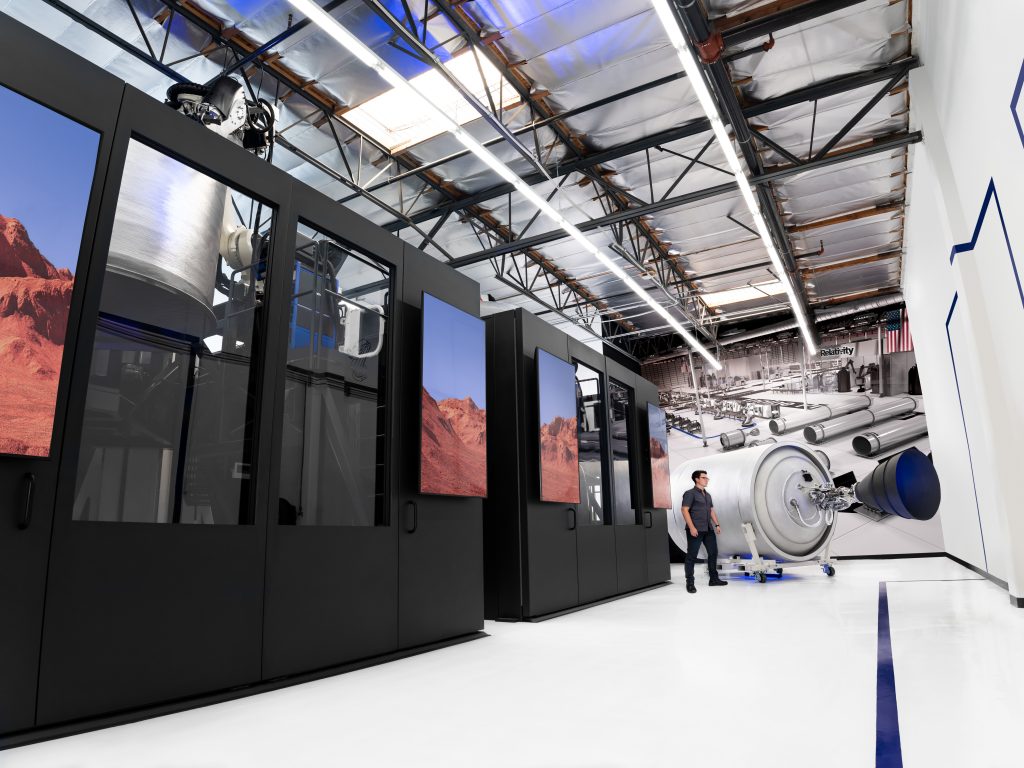Californian 3D printed rocket manufacturer Relativity Space has announced the successful raising of $140 million in funding.
Led by global technology investment firm Bond and San Franciscan growth-stage investor Tribe Capital, the Series C funding round received contribution from five new and four existing investors. This included Lee Fixel, Michael Ovitz, Spencer Rascoff, Republic Labs, and actor/musician Jared Leto, in addition to Playground Global, Y Combinator, Social Capital, and Mark Cuban that invested in prior rounds.
The money will be used to help finance preparation and development of the company’s Terran 1 rocket, currently scheduled for a test launch by the end of 2020. Following the apparent success of this test, the company has plans to enter the rocket into commercial service in 2021 with a contract from Canadian communication satellite provider Telesat to fulfill already.
“Relativity was founded with the long term vision of 3D printing the first rocket made on Mars and expanding the possibilities for human experience in our lifetime,” commented Relativity Space co-founder and CEO Tim Ellis.
“With the close of our Series C funding, we are now one step closer to that vision by being fully funded to launch Terran 1 to orbit as the world’s first entirely 3D printed rocket.”
Reinventing the rocket manufacturing value chain
Relativity Space first entered the private space exploration market with its ambitious goals of producing a fully 3D printed vehicle in 2015. Into it’s fourth year of development, the company has surpassed a number of milestones, including the successful production of a 14-foot-tall fuel tank for the Terran 1, and more than 200 hot-fire tests of its AEON engine.
Continually on the advance, the company this year signed a contract with the U.S. Air Force to operate its launch facility at Cape Canaveral Air Force Station in Florida. Later, in June 2019, Relativity was granted permission to expand facilities at NASA’s Stennis Space Center in Hancock County, Mississippi, to build a fully fledged production facility.
The core of Relativity Space’s production is the Stargate 3D printer. Operated by the interaction of several robotic arms, this machine is challenged with producing a whole Terran rocket in just 60 days, plus 6 months of iteration. Upgrading the capacity of the Stargate, Relativity now has several “next generation” 3D printers in operation. With this system, the company seeks to entirely reinvent the rocket manufacturing value chain, which has remained largely unchanged in over 60 years. According to Noah Knauf, co-founder and General Partner at Bond, who co-led the Series C investment, “We believe the Stargate factory is a template for the future of aerospace manufacturing and provides Relativity’s commercial customers, and eventually humanity, a faster, more reliable, and lower cost way to shuttle important resources from earth to outer space.”

Beyond Earth’s orbit
Between 2015 and 2017, Relativity was carried along by $10 million in funding. The company then received a further $35 million cash injection in 2018. With the new funding combined, the company has now raised around $185 million to carry out its mission.
By the end of 2019, Relativity is seeking to secure a polar and Sun Synchronous Orbit (SSO) capable launch site for the Terran 1, taking the 3D printed rocket to altitudes of up to between 600 and 800 km.
“Accelerating speed in the design, manufacture and delivery of rockets will become the Moore’s Law of space travel and exploration,” states Arjun Sethi, Cofounder and General Partner at Tribe Capital in conclusion, “By optimizing manufacturing for speed, Relativity will increase the frequency of launches in service of growing commercial and consumer needs in space.”
“Just as doubling microprocessor speeds enabled the personal computing revolution, Relativity will push forward an entire ecosystem of hardware and software systems to take humanity beyond Earth’s orbit.”
For all of the latest aerospace news subscribe to the 3D Printing Industry newsletter, follow us on Twitter, and like us on Facebook. Create a profile on 3D Printing Jobs now to advertise new opportunities.
Featured image shows Jordan Noone co-founder & CTO of Relativity Speace for scale alongside the Stargate 3D printer. Photo via Relativity Space



